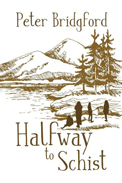
 |
This classic coming-of-age story is set in the summer of 1955 in the rustic and beautiful Georgian Bay area of Canada, where Red and her father have come to restore an old family fishing lodge. Still grieving her mother's suicide, Red immerses herself in the island's life, working side by side with her father, befriending the locals and natives while warily getting to know the wealthy tourists staying nearby in a hotel. The idyllic setting is disturbed only by the locals and tourists' disparate lives, which generates a conflict that places Red at the center with disaster looming. As she navigates her new life on the island, she is guided by stories and lessons left behind by her mother in a journal. This collected wisdom from her mother comes mostly from her life as a geologist and academic and relies heavily on natural processes as metaphors for understanding the human struggle. As Red confronts various issues in her teenage life during one indelible summer, her mother's lessons provide timely wisdom.
Emerging from this piece of historical fiction is a deeply felt examination of nature which serves as a way to view the world and work through the struggles of being human. Natural processes like glaciation, weathering, tectonics, and subduction become lessons from Red's mother on how to respond to difficult challenges that arise in life. These detailed descriptions of nature and science fit neatly into the developing plot as Red's summer intensifies. She struggles with peer pressure and increasing conflict with the rich kids that visit the island each summer. She finds solace in nature and also with several native Canadians who offer her kindness, support, and camaraderie. With strong character development and a sense of place, this nourishing story has the feel of a classic as it tackles the social stratification of a unique setting and the impact of one fateful summer on a young person's life. Red is fully realized as a young woman solidifying her values as she encounters cruelty and friendship in equal measure. She wrestles with belonging, tempts trouble, and discovers lifelong friends. Action abounds as Red fights off brutish boys and terrible mobsters, watches exciting and dangerous boat races, and reels in a whopper of a fish. These scenes are moving snapshots of a special time and place and are rendered with authenticity and aching nostalgia.
Bridgford's tone and style are reminiscent of Mitch Albom, who reaches out from stories, real and imagined, to deliver wisdom that is heartfelt and immensely practical. But Bridgford's use of nature and science as a direct conduit for instruction sets him apart. Using nature as a symbol is common in all genres, but taking lessons from geology and applying them to a person's life offer a unique perspective and takeaway from this story.
Bridgford is a master storyteller who keeps the tension building as the conflict steadily increases and multiple characters foreshadow rising danger. As the summer progresses, the plot moves toward a devastating climax that will have lasting ramifications for everyone. Readers will turn page after page, whispering warnings to Red in the hopes of sparing her more sorrow but knowing that's not really how life or nature works.
RECOMMENDED by the US Review